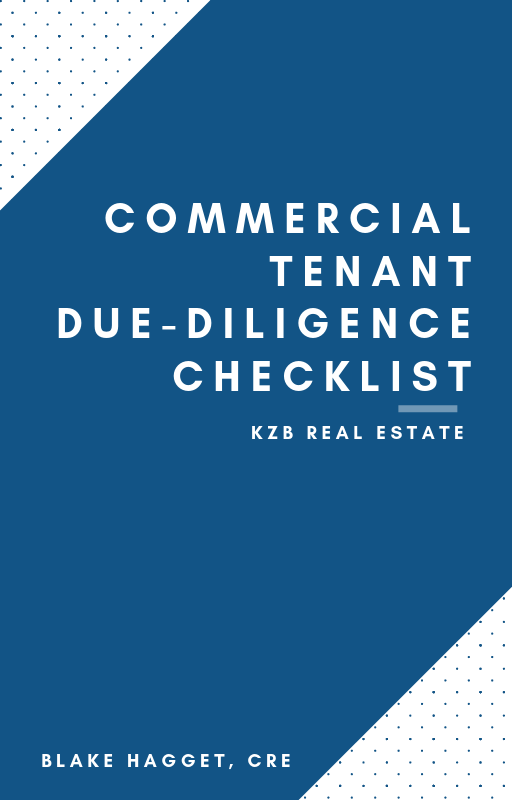Commercial Real Estate Asset Management Boise

Investing in commercial real estate can involve buying, selling, or leasing, a property for profit. Establishing a commercial real estate investment portfolio is a great way to diversify a financial portfolio and maintain a large scale investment strategy that can provide valuable returns. It is important to work closely with a commercial real estate asset manager to mitigate risks, particularly in a turbulent financial climate. Economic downturns and fluctuating economies impact commercial real estate investments and are complicated to navigate as well as time-consuming if the investor is not informed and guided effectively by a real estate asset manager.
Commercial investment properties include apartment complexes, retail properties, office buildings, self-storage etc. Effective and efficient commercial real estate asset management involves consistent and constant research on the commercial real estate market to ensure the highest return on investments for their clients.
Have questions? Connect with us with the form below.
What is commercial asset management?

Commercial asset management involves consistent research of market data, alongside analysis and predictions of trends to provide the best forecasts for a client to increase the revenue of their investment portfolio. A commercial real estate asset manager works closely with their client to learn their objectives regarding their commercial real estate investment portfolio and design a management strategy that maintains and increases property value when relevant. They provide valuable advice and think innovatively around risk-mitigating, renovation for value increase, and promotion of the property to attract reliable tenants. Each property has its highest and best use and if you are not capitalizing on that you could be leaving large amounts of money on the table.
What does a commercial real estate asset manager do?

A commercial real estate asset manager is in charge of managing a commercial property asset portfolio for their clients. Clients can range from businesses and corporations, individuals, governments, and private investment companies. Real estate investment is often a large part of an individual or company’s financial investment strategy to maintain a diversified portfolio. Real estate investors are looking for an experienced real estate asset manager, who has experience in the industry, with a strong desire to research, predict, and act upon the constantly changing financial markets.
Local real estate asset managers often specialize in their area and specific property types. At KZB Real Estate, we understand the changing business landscape of Boise, Idaho, and can provide informed opinions to maximize commercial real-estate portfolio return. We are consistently conducting market research and analyzing data to provide revenue forecasts to our clients. Commercial real estate asset managers spend a large majority of time making decisions, communicating with other real estate professionals, and negotiating. This requires a high level of understanding and awareness of the current data and it’s projections, financial, political and the potential risks involved.
A commercial real estate asset manager also thinks innovatively for the client, posing potential improvements and upgrades to the property which could increase the long-term value of the investment. The asset manager is also in charge of hiring a property manager with whom they can work closely with. The real estate asset manager and the property manager will work together to communicate with the leasing agent, negotiate necessary contracts, understand U.S. legal implications on property investment and taxation laws to provide the investor with the best possible information and high-value portfolio.
A real estate asset manager also ensures that the commercial property lease is structured in a way that attracts tenants (if this the type of property invested in) and therefore acts as a consistent and valuable investment, with positive returns. This often means implementing some form of flexibility for the tenant in the lease to, therefore, reduce the number of vacancies.
Download our FREE ebook to get insight on the questions every tennant should ask.
What is the difference between asset management and property management?
A real-estate asset manager will work with a property manager who organizes and monitors the day-to-day administration and functioning of the property. The asset manager’s role is on a primarily financial level, managing the client’s portfolio and investment strategy. The relationship between an asset manager and the property manager is essential to ensure the client’s portfolio and the property is managed efficiently. The asset manager will also work with the property manager to communicate with the investors, leasing agents, vendors and devise contracts.
Effective property management ensures that the administrative side of the property is under control, ensuring tenants are satisfied and the value of the investor’s portfolio remains strong. The property manager will specifically address the operations of the building including security measures, fire, and safety precautions such as inspections, standard procedures of operation, and administration from and contract and lease standpoint. Their role is to also ensure that the tenants of the building are satisfied and their needs addressed accordingly.
What is the role of asset managers in real estate?

Commercial real estate asset managers have the broad goal of serving their clients to maximize the returns on their commercial property investments. This is achieved by maintaining a high-value price point on the property or properties in the client’s portfolio. Unlike general financial assets, investing in and managing commercial property assets involves mitigating physical risks such as damage from weather, tenants, and general wear and tear. This is why a commercial real estate asset manager works closely with a property manager who conducts frequent on-site physical checks to maintain the value of the property. Mitigating risks, including potential liabilities, is crucial to ensure the value of the property remains high and the client’s portfolio continues to generate revenue.
We often forget that commercial property investing in the U.S. involves a large amount of legal and tax work which is time-consuming and complicated for the investor to manage themselves. By working closely with a commercial real estate asset manager, the investor will save valuable time and mitigate any legal or tax risks which could be costly.
If you are needing a valuation on your commercial assets and also interested in what we have to offer, contact us today and we can schedule an appointment to make sure you are realizing all the benefits of your assets!



